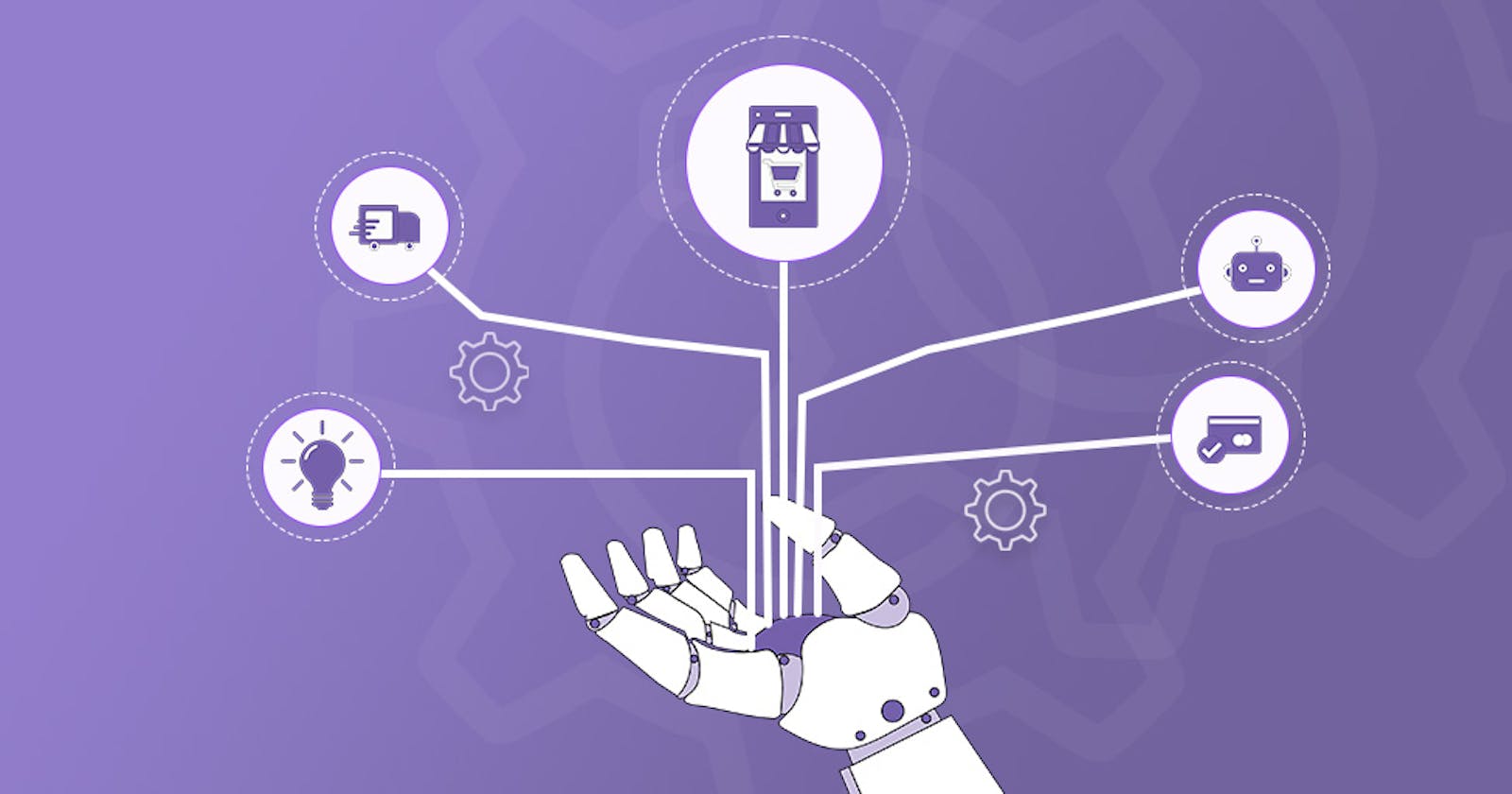The conventional retail industry is going through a considerable reevaluation and upgrade as increasingly more physical stores help e-commerce app development by taking on online business stages controlled by state-of-the-art tech. The new fast turn of events and sending of simulated intelligence advances, for example, AI, ML, and support learning, have empowered new internet business items and answers for different situations and reinforced the retail esteem chain.
E-commerce business ordinarily enacts across numerous internet-based sales platforms or on a brand's official web stores. Because of late headways in artificial intelligence and computerized advances, working expenses for e-commerce businesses have to diminish, empowering more retailers to acknowledge e-commerce business changes.
Let's discuss AI trends in the e-commerce business in detail.
AI Trends Boosting The E-commerce Business
Artificial intelligence-driven internet business methodologies are mostly upheld by computer vision and natural language processing (NLP) and support learning advances.
Computer Vision: By utilizing computer vision, retailers can make item listings with great pictures, empowering clients to all the more likely figure out the subtleties of an item or administration. Computer vision innovation likewise has possibilities in regions, for example, algorithm-driven item poster design and item suggestions in light of clients' visual style inclinations.
NLP: E-commerce business stages use NLP to look at and arrange calculations/algorithms for keyword examination and trait extraction from item portrayals to further develop and improve the shopping experience with better item coordination. Dynamic NLP-driven arranging frameworks can likewise more effectively guide customers to trading items.
Reinforcement Learning: Numerous massive e-commerce business platforms use reinforcement learning innovation and extensive information in customer/user behavior forecasts to streamline item rankings on indexed lists and improve e-commerce conversion rates.
Value Items Searching: Item looking/searching is one of the most often utilized and significant highlighted features for e-commerce business stages. Users can find items matching their interests through keywords, where item matching depends on NLP advances, and visual "search by picture," which use computer vision. Business stages additionally use support learning advancements to improve their ranking calculations and convey better search items.
Customized Item Suggestion: Besides searching, e-commerce business stages use AI and NLP strategies to draw in purchasers and make customized item proposals based on their shopping patterns and perusing history.
Dynamic Valuing: Numerous e-commerce business stages utilize active evaluating devices controlled by huge information and AI calculations to make constant cost changes or anticipate future costs given market interest projections.
Fraud Risk Management: E-commerce business retailers use AI/ML advances to detect potential fraudulent credit card exchanges to forestall and control gambles progressively and guarantee secure online payments.
Representative Use Cases for E-commerce AI Implementation
Amazon: Amazon has long carried out powerful valuing calculations for item deals on its e-commerce platform, regularly changing item costs in a light inventory stock and demand patterns.
Alibaba: Alibaba sent off its self-created picture web search tool, "Pailitao," in 2014. From that point forward, Pailitao has been generally carried out on Alibaba e-commerce business stages "Taobao" and "AliExpres" to return outwardly similar pictures to those transferred by shoppers, helping, for instance, to organize attire, accessories, and different items.
Pinterest: In 2017, US web-based social media platform Pinterest sent off its visual hunt device "lens" as a thought discovery engine on its versatile mobile application. The organization joined forces with retail monster Target to incorporate Pinterest's lens into the target.com business stage to assist clients with tracking down things of interest through pictures.
Limitations of AI Application in E-commerce
Limitations of AI apps in e-commerce are as follows:
Cold Beginning Issue: Because of information shortage, retailers working on another business on an e-commerce business stage will need help to exploit progressed AI intelligence-based features like proposal systems and dynamic estimating that depend on vast amounts of information and examination.
Scalability Issue: Support learning innovation can experience execution bottlenecks on internet business stages. Calculations frequently battle scaling issues and can confront difficulties actually and proficiently looking through exceptionally enormous choice spaces.
Long Tail Effect: E-commerce business proposal calculations might introduce just a few of the most famous things to users and neglect to suggest interesting "long-tail" items that could be more interesting to specialty buyers, as such items can, for instance, need adequate evaluation information.
Wrapping Up!
Business working models that combine AI intelligence with human mastery will become progressively predominant. Nowadays, more retailers, particularly style merchants, have given "search by picture" administrations to empower buyers to find and make online purchasers of a thing they see, for instance, at a design show or print magazine. The 2018 worldwide retail online business market added up to US$2.8 trillion and is supposed to grow 75% to US$10.0 trillion by 2023.
China is the world's biggest e-commerce business market, with the most B2C deals and an excellent customer base. As per a report, over 1,000 internet business retailers in China, north of 80% of the dealers, have embraced and often used AI devices in their organizations/businesses.
Comment below or contact us for any queries, questions, or suggestions.
Thanks!!!

